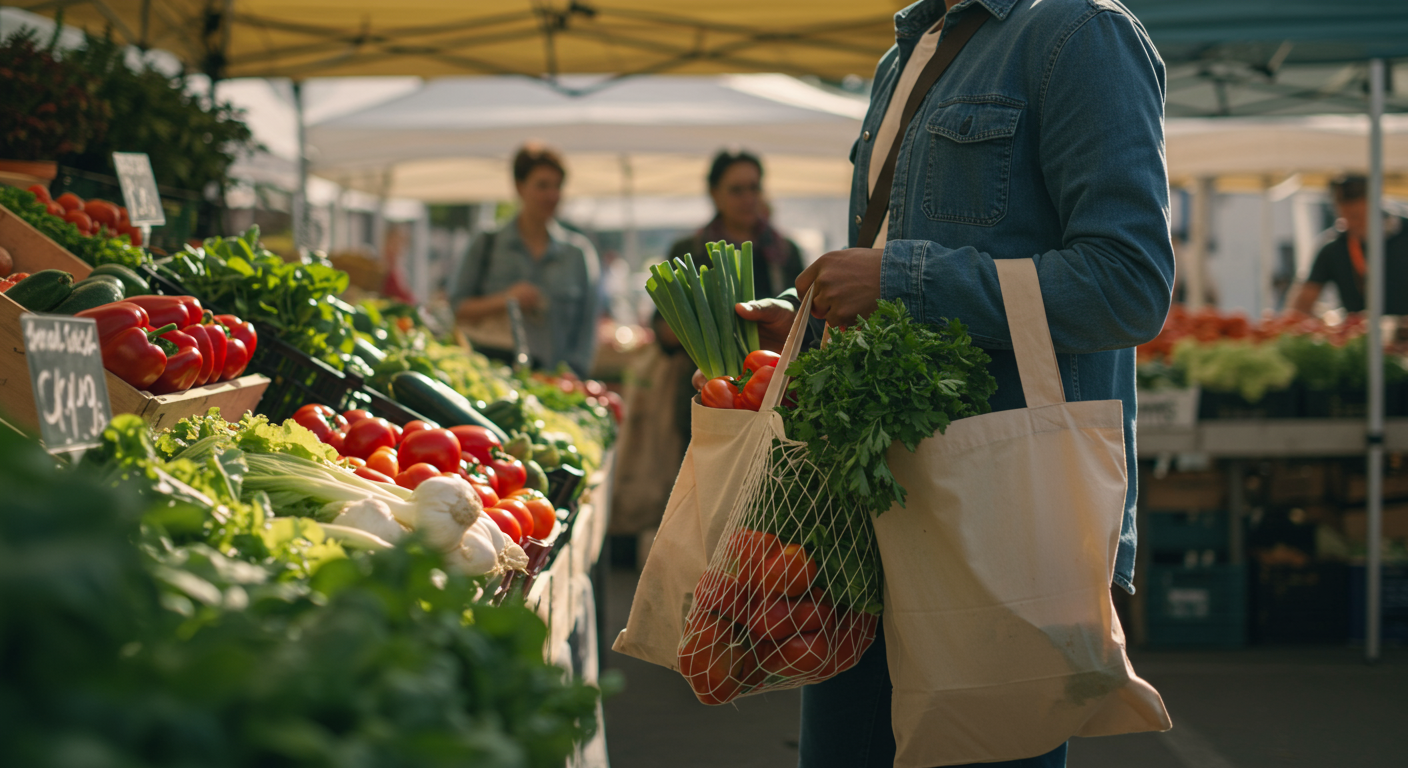For eco-conscious consumers, the journey towards a greener lifestyle is an ongoing evolution. It involves making informed decisions about every aspect of our lives, and food is a critical area where we can significantly reduce our environmental impact. This guide delves into the world of sustainable food, exploring the powerful combination of local produce and plant-based eating.

Deep Dive into Sustainable Food for Eco-Conscious Living
Sustainable food choices encompass a range of practices designed to minimize the environmental impact of our meals. This includes reducing food miles, supporting ethical farming practices, and lowering our carbon footprint. By making conscious choices, we can contribute to a healthier planet and a more resilient food system.
Advanced Strategies and Insights
One of the most effective strategies for sustainable eating is to prioritize local produce. This means sourcing food from farms and producers within your community or region. Local produce minimizes the distance food travels, reducing transportation emissions and the need for extensive packaging. Additionally, it supports local economies and often provides fresher, more nutritious options. Seek out farmers markets, community-supported agriculture (CSA) programs, and farm-to-table restaurants.
Plant-based eating is another cornerstone of sustainable food choices. Plant-based diets typically require fewer resources and generate fewer greenhouse gas emissions compared to diets high in animal products. They can also reduce the demand for land, water, and energy used in animal agriculture. There are many ways to incorporate more plant-based meals into your diet, from Meatless Mondays to fully embracing a vegan lifestyle. Experiment with plant-based recipes, explore different cuisines, and discover the variety and deliciousness of plant-based cooking.
Optimizing Your Sustainable Consumption
Beyond local and plant-based choices, consider these additional strategies to optimize your sustainable food consumption:
- Reduce Food Waste: Plan your meals, store food properly, and compost food scraps to minimize waste.
- Choose Seasonal Produce: Seasonal fruits and vegetables are typically more abundant, flavorful, and require fewer resources to grow.
- Read Labels Carefully: Pay attention to food labels to understand where your food comes from and how it was produced. Look for certifications like organic and fair trade.
- Support Ethical Producers: Choose products from companies committed to sustainable practices, fair labor standards, and animal welfare.
Case Study: Thriving on an Advanced Sustainable Path
Imagine a family that has completely embraced sustainable food choices. They source most of their produce from a local CSA, plan their meals around seasonal ingredients, and cook primarily plant-based meals. They are actively reducing their carbon footprint, supporting their local community, and enjoying a healthier diet. This is a realistic goal for anyone committed to sustainable living.
Navigating Complex Environmental Challenges
Even with the best intentions, navigating the complexities of the food system can be challenging. Some common obstacles include limited access to local produce, the higher cost of sustainable food, and the time required for meal planning and preparation. However, with a little planning and creativity, these challenges can be overcome. Consider joining a community garden, exploring budget-friendly plant-based recipes, and making time for meal prepping on weekends.
Integrating Advanced Sustainable Practices
To further integrate sustainable practices, consider:
- Growing Your Own Food: Even a small herb garden or a few vegetable plants can make a difference.
- Participating in Community Food Initiatives: Support local food banks and gleaning programs.
- Educating Yourself: Stay informed about the latest research and innovations in sustainable food.
Scaling Your Impact: Beyond Personal Choices
While individual choices are important, we can also scale our impact by:
- Advocating for Policy Changes: Support policies that promote sustainable agriculture and reduce food waste.
- Supporting Sustainable Businesses: Choose to spend your money with companies making sustainable food choices.
- Sharing Your Knowledge: Educate friends, family, and your community about the benefits of sustainable food.
Expert-Level Green Living Insights
- Explore vertical farming: This innovative approach to food production can minimize land usage and reduce transportation emissions.
- Consider permaculture principles: Design your garden to mimic natural ecosystems, promoting biodiversity and self-sufficiency.
- Invest in a composting system: Reduce waste and create nutrient-rich soil for your garden.